ERP Consultancy for Industry-Specific Solutions – What to Expect
Enterprise Resource Planning (ERP) systems have emerged as indispensable tools for organizations seeking to streamline their operations, enhance efficiency, and stay competitive. These robust platforms integrate a multitude of core business functions, from finance and HR to inventory and customer management, into a unified digital ecosystem. But in an era where one-size-fits-all solutions often fall short of meeting the unique needs of various industries, the role of ERP has transformed dramatically.
Picture a scenario where a healthcare institution attempts to manage patient records with the same ERP modules as an automotive manufacturer tracking inventory. Or a specialized aerospace company striving to align its processes with generic software designed for general manufacturing. Such instances reveal the undeniable truth: the magic of ERP lies in its adaptability to the idiosyncrasies of distinct industries. Enter the realm of industry-specific ERP solutions – a game-changer for modern businesses.
Whether you’re a healthcare provider, a retailer, or a manufacturer, understanding the significance of industry-specific ERP is paramount to unlocking the true potential of these transformative systems. So, fasten your seatbelts as we navigate through the intricate web of ERP technology, industry nuances, and the future of business optimization. Welcome to the world of ERP consultancy for industry-specific solutions – where one size no longer fits all.
The Role of ERP Consultancy in Industry-Specific Solutions
ERP consultancy plays a pivotal role in ensuring that industry-specific solutions are not only feasible but also optimized to meet the unique demands of businesses within a particular sector. Here, we’ll explore the multifaceted role of ERP consultants in crafting customized solutions tailored to specific industries and the expertise they bring to the table.
Understanding Industry Nuances:
ERP consultants serve as the bridge between the ERP software and the intricacies of a given industry. They possess a deep understanding of the sector’s operational nuances, regulatory requirements, and best practices. This expertise allows them to decipher how the ERP system can be configured, customized, and extended to align seamlessly with industry-specific processes.
Customization and Configuration:
ERP consultants are adept at tailoring the ERP software to accommodate unique workflows and data requirements. They assess which ERP modules are relevant, which need customization, and how data should flow within the system. For instance, in the healthcare industry, consultants might configure the ERP system to handle patient records, billing, and compliance with healthcare regulations.
Integration Expertise:
Integrating an ERP system with other industry-specific software and systems is often a complex endeavor. ERP consultants bring in-depth knowledge of integration techniques and tools, ensuring that the ERP solution can communicate effectively with specialized applications such as Electronic Health Records (EHR) in healthcare or Computer-Aided Design (CAD) software in manufacturing.
Regulatory Compliance:
Many industries are subject to stringent regulations, from HIPAA in healthcare to ISO standards in manufacturing. ERP consultants are well-versed in navigating these regulatory landscapes and can configure the system to support compliance, track relevant data, and generate necessary reports.
Change Management and Training:
Implementing industry-specific ERP often involves significant changes in workflows and processes. ERP consultants are skilled in change management, helping organizations adapt to the new system smoothly. They also provide training to ensure that employees can effectively use the customized ERP software.
Future-Proofing:
The business landscape evolves continuously, and industry-specific ERP solutions must adapt. ERP consultants not only customize the software for current needs but also strategize for scalability and future enhancements. This forward-thinking approach ensures that the ERP solution remains relevant and effective in the long term.
In essence, ERP consultants are the architects, engineers, and navigators of industry-specific ERP solutions. Their deep industry knowledge, technical expertise, and strategic thinking are indispensable for crafting ERP systems that not only meet current requirements but also position businesses for growth and success in their respective sectors. Whether it’s healthcare, manufacturing, retail, or any other industry, ERP consultancy is the compass guiding organizations toward tailored solutions that maximize efficiency and competitiveness.
Challenges and Common Pitfalls in Industry-Specific ERP Projects


Industry-specific ERP projects come with their own set of challenges that can be complex and demanding. Understanding these challenges and having strategies to overcome them is crucial for successful implementation. In this section, we will delve deeper into the common challenges faced in industry-specific ERP projects and provide practical tips to navigate these potential pitfalls effectively.
Common Challenges in Industry-Specific ERP Projects
Complex Requirements Gathering:
Industry-specific ERP projects often involve intricate, unique processes. Gathering and documenting all requirements accurately can be challenging, leading to misaligned expectations.
Invest time in thorough requirements gathering. Engage with key stakeholders and conduct workshops to ensure all specific needs are identified and documented. Regularly review and validate requirements throughout the project.
Customization vs. Standardization Dilemma:
Balancing the need for customization to meet industry-specific requirements with the desire for standardization can take time and effort. Over-customization can lead to increased costs and complexity.
Prioritize standardization where feasible. Reserve customization for truly unique processes. Assess the long-term impact of each customization to maintain system stability.
Data Quality and Migration:
Data migration from legacy systems can be a significant step. Poor data quality, incomplete data, and data format discrepancies can disrupt operations.
Invest in data cleansing and validation before migration. Develop a comprehensive data migration plan and conduct extensive testing to identify and address data-related issues.
Resistance to Change:
Employees may resist changes to established workflows and systems, leading to reduced productivity and user adoption challenges.
Implement a robust change management strategy. Communicate the benefits of the new ERP system, provide training, and involve employees in the decision-making process where possible.
Integration Complexity:
Integrating the ERP system with existing applications, especially legacy systems, can be complex. Compatibility issues and data synchronization challenges may arise.
Conduct a thorough integration assessment. Consider using middleware or integration platforms to streamline data flow. Engage with experts who have experience in integrating similar systems.
Tips to Overcome Potential Pitfalls
Comprehensive Project Planning:
Develop a detailed project plan that includes milestones, timelines, resource allocation, and risk management strategies. Regularly review and adapt the plan as needed.
Strong Project Governance:
Establish clear project governance structures with defined roles and responsibilities. Assign an experienced project manager to oversee the project’s execution.
Expertise and Training: Ensure that your team, including consultants and employees, has the necessary industry-specific and ERP expertise. Provide continuous training and upskilling opportunities.
User Involvement:
Involve end-users from different departments throughout the project. Their insights can help identify issues early and improve system usability.
Continuous Testing:
Implement a rigorous testing and quality assurance process. Conduct thorough testing of all customizations, configurations, and integrations to catch and address issues before they impact operations.
Documentation and Knowledge Sharing:
Maintain comprehensive documentation of system configurations, customizations, and integrations. Encourage knowledge sharing within the organization to ensure long-term sustainability.
Post-Implementation Support:
Prepare for post-implementation support and troubleshooting. Have a dedicated support team in place to address issues promptly and make necessary improvements.
Regular Audits and Assessments:
Periodically audit the system’s performance and alignment with industry-specific requirements. Identify areas for improvement and enhancements.
Successfully navigating the challenges and pitfalls in industry-specific ERP projects requires a combination of meticulous planning, expertise, effective communication, and a commitment to ongoing improvement. By addressing these challenges proactively and implementing the suggested tips, organizations can maximize the benefits of their tailored ERP solutions while minimizing disruptions and risks.
Unlocking Industry-Specific Excellence with ERP Buddies
As we reach the culmination of our exploration into the world of industry-specific ERP solutions, one thing becomes abundantly clear: the ability to tailor your ERP system to the unique demands of your industry can be a game-changer. It’s not just about adopting technology; it’s about adopting the right technology that enhances your business’s capabilities, streamlines operations, and positions you for success in your specific sector.
While industry-specific ERP projects may come with their own set of challenges and complexities, they also offer unparalleled opportunities for growth, efficiency, and competitiveness. It’s a journey worth embarking on, and success lies in your approach.
Here at ERP Buddies, we understand the intricate needs of diverse industries, from healthcare to manufacturing, retail to finance, and beyond. Our team of seasoned ERP consultants possesses the industry-specific expertise and technical know-how needed to transform your vision into a customized reality. We are committed to guiding you through every step of your ERP journey, from initial assessment to post-implementation support.
So, if you’re ready to embark on the journey toward industry-specific ERP excellence, take the first step with ERP Buddies. Reach out to us today for a consultation and discover how tailored ERP solutions can transform your business.
Don’t settle for a one-size-fits-all approach when your industry deserves tailored excellence. Choose ERP Buddies, where industry-specific expertise meets ERP mastery. Your journey to industry-specific ERP success begins here.
Come say "Hi"
Partner with ERP Buddies, aN ERP Solution Provider
ERP Buddies is a Global ERP Solution Provider with diverse experience in implementing and Supporting NetSuite ERP for many industries.
With operations in the North America, Europe, Asia and United Kingdom, our Expert Team is accessible globally. It is their priority to create a smooth and positive experience for clients. Our experts assist clients throughout the entire implementation process, with on-site support and consultation and additional assistance in customizing your system to guarantee it meets your business needs. For our contact info, click below, and personnel for review will be in touch.
We can’t wait to get in touch with you!












